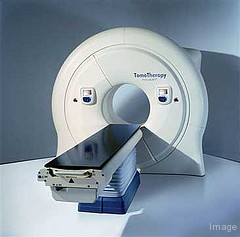Esophageal Cancer facts
Overview
Esophageal Cancer is known as the cancer of the esophagus, which is the tube that carries the chewed food and liquids from the throat and into the stomach. It is located behind the windpipe or the trachea and is about 10 inches long for adults. This kind of cancer is a serious form since it starts in the inner layer of the esophagus and can cause difficulty in swallowing and a sensation of food getting stuck in the throat or chest.
In the past, esophageal cancer was looked at as a condition which cannot be cured, but so far survival rates have improved thanks to technological advances that have made it easier to detect cancer early, which makes it easier and quicker to apply treatments to cure it. Some doctors have also theorized that a change in diet and lifestyle can reduce the patient’s chances of ever developing cancer of the esophagus.
Types and Forms
There are two major types of Esophageal Cancer known as the squamous cell carcinoma and the adenocarcinoma, which of course would depend on the type of cells that are proven as malignant. For the former, it arises from squamous cells that line the esophagus and occur in the upper and middle areas. For the latter, the cancer usually develops in the glandular tissue found in the lower area of the esophagus.
Symptoms
As compared to other kinds of cancers, symptoms of Esophageal Cancer are easier to detect during the early stages of the disease. Once the cancer advances, the most noticeable signs and symptoms include:
- Dysphagia or the inability/difficulty to swallow food and liquids. Even if this is the most common symptom of esophageal cancer, it usually arises only when the tumor has grown large enough to make the esophagus narrow down to half its width. Normal food like meat and bread may be almost impossible to swallow, which will eventually lead to difficulty in taking in liquids.
- Unintentional weight loss, which is most likely due to the change in diets since it is now difficult to swallow normal food. But of course it can also be because of the nature of cancer since normally cancer causes weight loss and muscle weakness.
- Pains in the throat, chest, and between the shoulder blades
- Vomiting of blood, hoarse voice, and hiccups can occur but usually when the cancer is in its advanced stages already.
Causes
Doctors and specialists have yet to discover the immediate cause of esophageal cancer, but have been able to identify several factors that have contributed to its development that can damage the DNA in the esophagus. These can include:
- Heavy intake of alcohol – many cases of squamous cell carcinomas in the esophagus are due to alcoholism, which is usually rampant in Western nations. When a person drinks heavily, the alcohol irritates the lining of the esophagus, which could lead to inflammation and eventually detrimental changes in the cells.
- Tobacco use – any form of tobacco can increase chances of developing esophageal cancer, particularly squamous cell carcinoma.
- Chronic acid reflux – this refers to the stomach acids going up the lower esophageal area, which can cause heartburn and eventually lead to Barett’s esophagus, which is a condition where cells similar to the stomach’s glandular cells develop in the lower parts of the esophagus.
Rare medical conditions – sometimes esophageal cancer can be because of other medical conditions like:
- Achalasia – food collects at the bottom of the esophagus due to the lack of normal peristalsis.
- Esophageal webs – these are thin tissue that can appear anywhere in the esophagus, which can make swallowing difficult.
- Tylosis – this is excess skin that develops on the soles and palms, which is found to be a factor that contributes to esophageal cancer.
Treatment
Treatments would normally depend on the type of esophageal cancer, the location, the stage or severity of the cancer, as well as the patient’s age, health, and personal preferences. There is usually further discussion involved since the most effective way is to apply a combination of treatments such as surgery, chemotherapy and radiotherapy.
Surgery is usually a common treatment for esophageal cancer since it is able to relieve the symptoms, especially the inability to swallow foods and liquids. There are two kinds of operations depending on the nature of the cancer:
- Esophagectomy – the surgeon removes the portion of the esophagus where the tumor is located, which is normally near the lymph nodes. The remaining esophagus is then reconnected to the stomach to continue the inflow of food and liquids.
- Esophagogastrectomy – this type of surgery is usually done for advanced types of esophageal cancer, wherein the surgeon removes a part of the esophagus, which is near the lymph nodes and the upper portions of the stomach.

